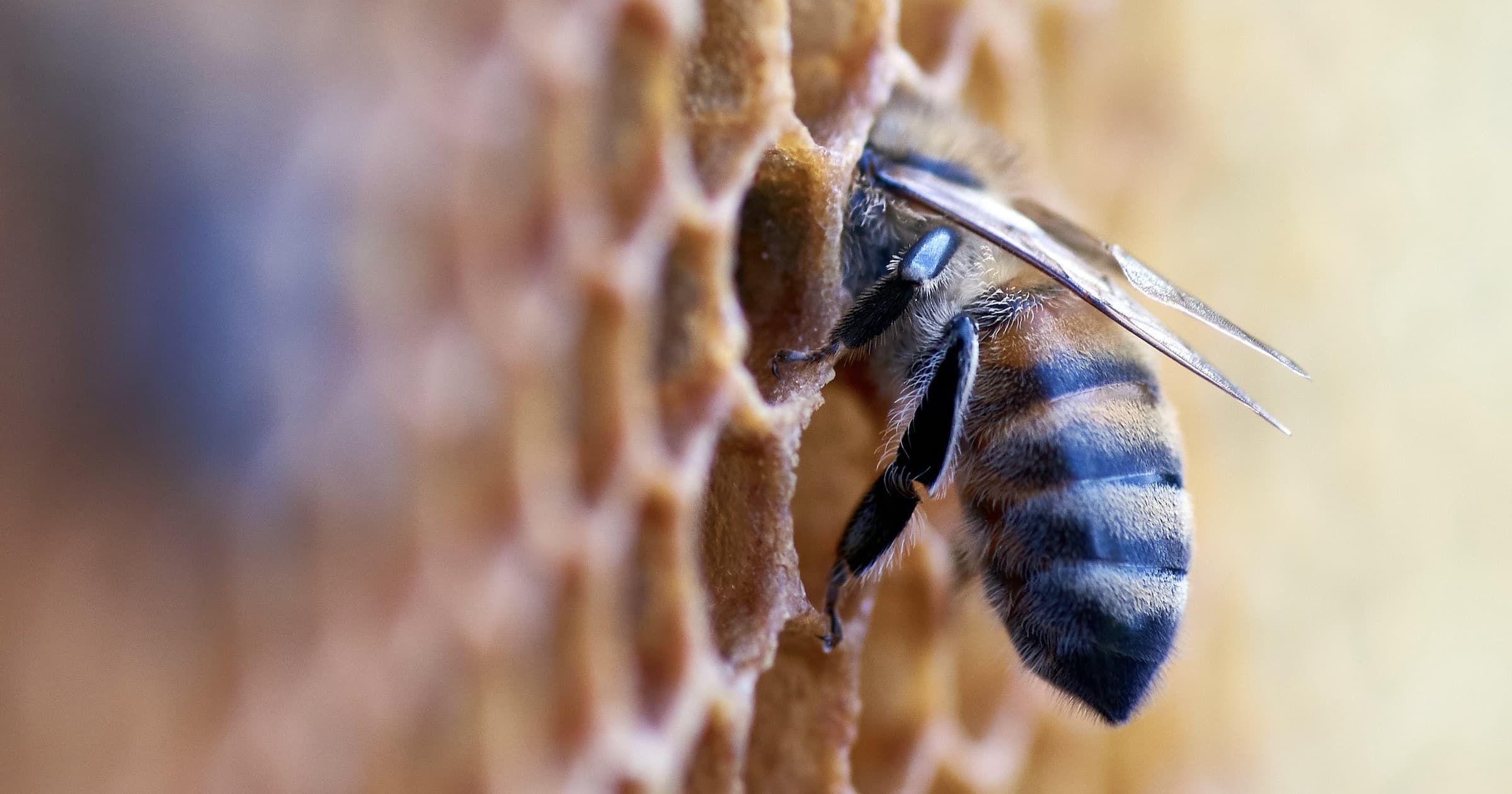 Neuroscience & Mind
Neuroscience & Mind
What Is It Like to Be a Bee?

Behavioral ecologist Lars Chittka’s recent book, The Mind of a Bee (Princeton University Press, 2022), is a fascinating detailed description of bee behavior that will cure us of believing that the insect world is devoid of intelligence or sensation. Indeed, in a 2018 essay with Catherine Wilson, Chittka offers many research findings in a shorter format. It’s only in Chapter 11, toward the book’s end, that he makes a controversial claim:
From the very start, early in evolution, nervous systems were inseparable from movable bodies with sensors, and developed in order to integrate perception and action. The challenges of survival and self-replication (reproduction) that a moving organism faces are most efficiently met when brain and body are intimately connected, enabling the organism to know itself as distinct from non-self and to predict at least the immediate future, in part from knowing its own intentions. In this view, an elementary form of consciousness may have come into being at the roots, not at the endpoint, of animal life.
LARS CHITTKA, THE MIND OF A BEE, PRINCETON UNIVERSITY PRESS, 2022, PP. 208-209
At the beginning of the chapter, Chittka qualifies that conclusion by saying, “Before we start, let’s be clear that no one is suggesting that bees’ consciousness is in any way as rich and detailed as humans’” (p. 189). Well, in fairness, we would hardly expect him to make a claim for which all the evidence goes the other way. He did, however, tell the BBC, “In my book, I explore the psychological differences between bees and the ethical dilemmas that arise in conservation and laboratory settings, because bees feel and think.”
Part of the Story
In these situations, the reviews and surrounding events become part of the story. At New Scientist, for example, Alun Anderson is quick to grasp the significance:
Consciousness used to be seen as uniquely human, but then other mammals, starting with primates, were admitted to the club. Now many consider that an invertebrate, the octopus, may be aware. To include an insect in this consciousness club would be another prodigious leap: from being almost alone, we would find ourselves in a vast sea of sentience.
ALUN ANDERSON, “THE MIND OF A BEE REVIEW: CAN A BEE HAVE A FORM OF CONSCIOUSNESS?” AT NEW SCIENTIST
Anderson balks, musing, “ARE we ready for the radical message that an insect may have a form of consciousness? I am not sure.”
It’s becoming fashionable to see bees this way. As one researcher told The Scientist, reflecting on bee dopamine levels monitored during the waggle dance, “Having the dancers showing this peak of dopamine when they start dancing, you have to think this is not a robot. It’s someone having a memory.” The bee is now “someone.”
Someone? Really?
The Terminology Is Vague
What, exactly, does “consciousness” or “feel and think” mean when applied to a bee? This usage is no remote outpost. Renowned USC neuroscientist Antonio Damasio tells us that viruses are “intelligent.” Similarly, University of Chicago biochemist James Shapiro says in a scholarly paper that all living cells are “cognitive.” But what do they mean? Intelligent or cognitive as in humans? Dogs? Bees? Are we talking about a universal standard or are these the intuitions of seminal thinkers?
The difference matters: Panpsychism (everything is conscious) and, for that matter, insect rights, can advance a great deal in public perception, unimpeded by the risks that attend clear and rigorous terminology. The very fact that formerly materialist New Scientist treats it sympathetically underlines the transformation.
Read the rest at Mind Matters News, published by Discovery Institute’s Bradley Center for Natural and Artificial Intelligence.


